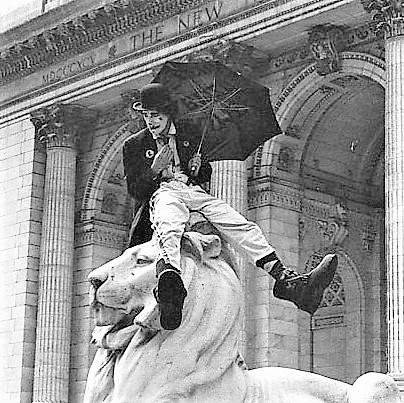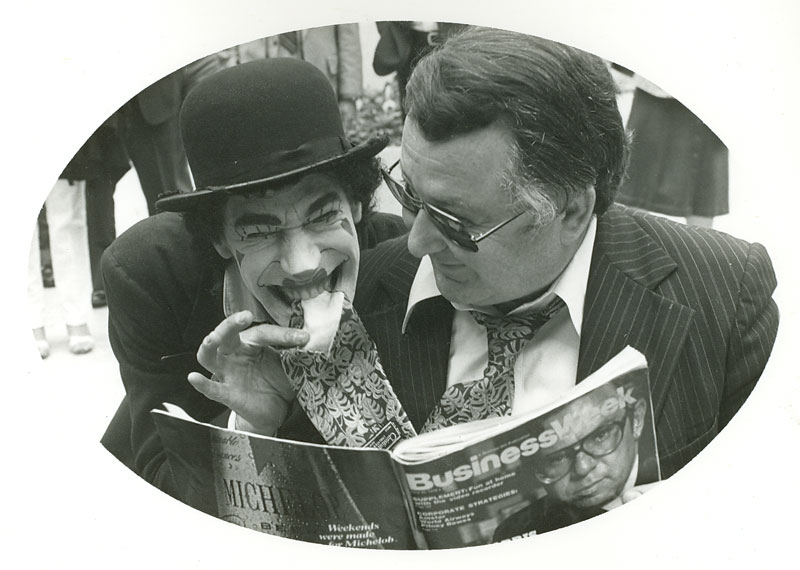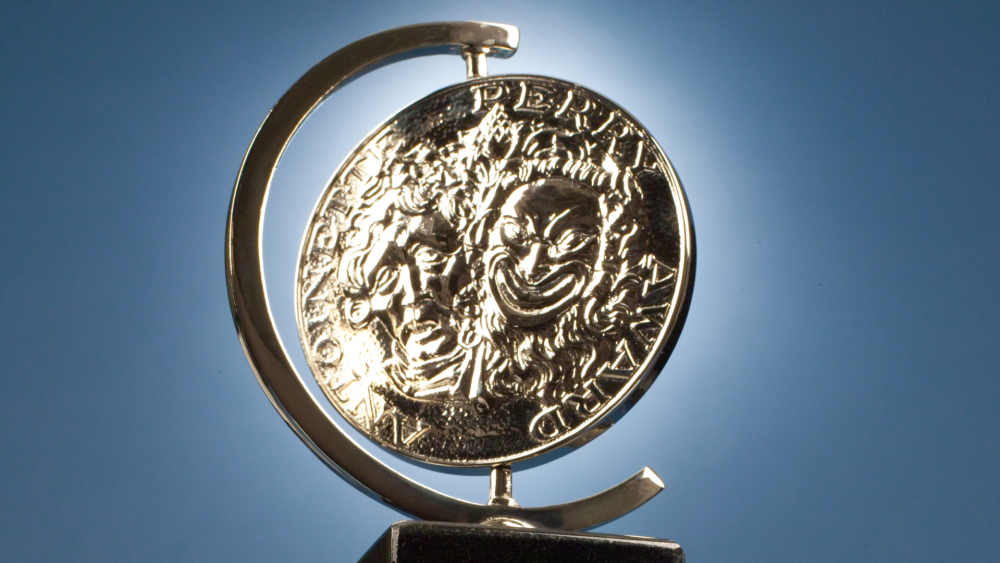
Kenny’s and my family had moved into the new neighborhood near Salisbury Elementary School that was built for all the kids of the GIs that had come home from World War 2 and were now thriving in post-War America. My part of the neighborhood was called Birchwood and was almost entirely Jewish. We moved into the three-bedroom ranch house shown as the model in 1952 and Kenny’s family moved up the street into a court with a dead end a few years later. He was a year older than I was, and I didn’t really get to know him until high school… whose name was W. Tresper Clarke… which they also built for us boomers… because we were growing up in bunches and just demanded more and more room. Kenny and I were the two first classes to go to Clarke, I went in 5th grade, he went in 6th.
I’ll tell you how I got to know Kenny in high school. First, he became a wrestler. A really good one. I think he wrestled at 140 pounds. That’s about a middle weight, if you know boxing, for example. Pretty big for high school. I wrestled in 6th grade when I was forced to in gym class – at 85 pounds – and I won my division by beating Georgie Bauer, but having to fight three, 2 minute periods, at full strength for a hundred per cent of the time, was the hardest thing I ever did in my life. And even at twelve years old, I couldn’t face the possibility of losing, so I quit and never wrestled again. But Kenny Greenblatt, he wrestled in high school… and he won. Clarke had an awesome team. They went on to compete in county and state championships. Brian Lambe, Richie Specion, Andy Capozzi… these guys were like gods to us ordinary kids. But Kenny Greenblatt… a Jewish kid from our neighborhood… his wrestling… and winning a county championship… this was absolutely unthinkable. Totally impossible.
Because I’m sure Kenny never knew that these same Italian and Irish wrestlers and their brothers were picking on me with their anti-Semitic bullying in the underground parking garages at Clarke where I locked my Schwinn bicycle every morning.
“Hey, Kike, lose your bike?”
It was Barry O’Flaherty and his little brother, Larry, both on the wrestling team. They’d cut my bike chain and were now threatening to beat the hell out of me. I was terrified. I know they wouldn’t be stealing Kenny Greenblatt’s bike.

“What’s a Kike, Mom?”
She was furious. But that’s… another story.
Kenny Greenblatt sold me his fraternity sweater in high school. I’ll bet he doesn’t remember. It was called the Black and White fraternity, and I guess Kenny was so cool by the time he was a junior, he’d already quit. I bought the sweater for ten dollars. I was never cool in high school.
But I’ll bet Kenny does he remember that I “helped him” on a few of his high school tests. That is… I let him copy the answers off me. You see, I was put in all the smart kid classes… and Kenny was known as a “dumb wrestler”. I don’t know how we ended up in the same classes together, his being a year older and my usually being partitioned away with all the smart kids. But it happened. And there was Kenny – sitting exactly behind me – to the right – at a forty-five degree angle – that I’m sure he’d perfectly calculated – copying every word off my test. History, math, I can’t remember which… maybe both… one day for each. But I do remember… that dumb wrestling champ… copying all the answers off me… the bullied Jew.
The next memory I have of Kenny Greenblatt is a funny one. It’s more than a decade later. We’ve both graduated college. Me from the University of Buffalo, where I never wanted to go; Kenny from the University of Miami, where I hear only recently, I think he’s won another state wrestling championship. It’s 1977. I’ve moved back to New York, after unimaginably, becoming a professional modern dancer in Chicago for seven years, even though I might have been voted the boy “least likely to become a modern dancer” at Clarke. Kenny, no doubt now called “Ken” has, post-college graduation (how did he do that?), joined his father in the schmata business.
Oh, along the way, I’ve also become a professional clown. That’s right. White face, baggy pants, Charlie Chaplin black derby, no talking, just a very verbose kazoo. My clown name is “Gino Cumeezi.” I’ve gotten lots of grants for my dancing and clowning in Chicago, but now I’m living in the itinerant Hotel Woodward on 55th Street and Broadway, paying $55/week for rent, and I’m “clowning” every day out on the streets of New Yawk – for a little fun and self-discipline. Hey, that’s what clowns and artists do.

Today I’m at 40th and Broadway. That’s the heart of the schmata business; in fact, my father works right nearby. Well I’m (Gino is) clowning and kazoo-ing away, improvising with all the people in midtown Manhattan that are willing. I call it “Free Public Laughs”. I don’t “busk” or collect any money. That’s why I got grants. Gino just tries to break peoples’ boundaries and make them laugh. He mimics them, grabs their hands (if they’ll let him), challenges them to a boxing match, directs traffic in the middle of the street… you get the idea. Sometimes, one of my (Gino’s) “audience members” is super enthusiastic and will spend a long time with him – even bring him up to their office. One time, Norman Cousins, editor of the Saturday Review and proponent of laughter being a healer of illness, takes me up to his magazine office, where I (Gino) proceeds to stand on his desk, throw his papers all over the office and horrify his staff in peals of laughter.
Well today, a businessman in a suit and tie (not this guy above) is so delighted with Gino at 40th and Broadway that he brings me upstairs to his 11th floor office. It reads “Greenblatt and Son.” (At least in my memory.) And in two seconds, I figure out that this childlike, enthusiastic businessman is none other than my wrestling high school buddy, Kenny Greenblatt. Wow! He has no idea who I am. I mean, who Gino is. Immediately, Gino goes into a confrontational wrestling posture. Kenny half falls for it – half going into a competitive wrestling pose. As I say, he’s in a suit and tie. He stops himself.

“Who are you?” he demands.
I point to my name tag. “Gino Cumeezi.”
He tries to pronounce my (Gino’s) name and I have to admit, he does a pretty good job.
Gino goes down onto his hands and knees, like it’s second or third period in a wrestling match – waves for Kenny to take his position on the floor. Kenny’s confused. He hesitates. Gino gets up and wags his elbows like a chicken, making “chicken noises” with his kazoo. “Bawk, bawk, bawk!” “Ken” doesn’t like it.
Gino takes a piece of paper on Ken’s desk and writes down:
“W. Tresper Clarke.” “Brian Lambe.”
“Who are you, man?” he demands again.
He grabs Gino around the arms and pats his pockets for ID. Gino doesn’t have any. Ken’s a big guy now, still with a huge wrestler’s barrel chest. He lets Gino go. Gino challenges him again to wrestle. Ken is really dumbfounded.
He walks over to sit in his office chair. After all, it’s his office. Gino comes over and sits on his lap. Ken pushes Gino off. This is absurd. Who is this guy?
Gino writes down “Andy Capozzi?”
“How do you know these guys, man? You have to tell me.”
I don’t. Tell him anything. That is, Gino doesn’t tell him anything.
Gino struts out of the schmata office confidently, and waves, “bye-bye.” And that’s the last time I see Kenny Greenblatt. 1977.
————————————–
Then sometime in the early 1980s, I hear, much to my surprise and disbelief, that a man named Kenneth D. Greenblatt, has won a Tony Award for Producer of a Broadway musical. I look in the newspaper, and sure enough, it’s my buddy, Kenny Greenblatt, from Clarke High, who I last saw in 1977, when I/Gino Cumeezi, the clown, last sat in his lap. I say to myself. How can this be? How can that dumb wrestler have just won a Tony Award as a producer?

I never find out. It’s a mystery. I move out to LA in 1982. I become a poet, a podcaster, a college professor, a solo performer. But over the years, and it’s been almost forty now, I hear that Kenneth D. Greenblatt keeps winning Tony Awards as Producer of the Year. I still can’t figure it out. This guy cheated off me in high school.
So, a month ago, I break down. It’s 2021. I find Mr. Greenblatt on Facebook. I mean, who’s not on Facebook, right? And I send him a message: “Hi, there. Do remember that clown who came up to your office on 40th and Broadway in 1977? Who challenged you to a wrestling match in your father’s office? Who knew Brian Lambe and Andy Capozzi? But who you had no idea who it was?” And I send him the electronic photo above.
And I get a text message back right away:
“Sorry, but I don’t remember.”
I’m heartbroken. You can see all the detail I remember. All the joy I got out of duping the dumb wrestler in his father’s schmata office. And the now multiple Tony Award-winning producer doesn’t even remember the great Gino Cumeezi? Come on!
I try again:
“Well do you remember Eric Trules? I lived in the neighborhood, went to Clarke with you, and I ‘helped’ you pass a few high school tests.”
Again, I hear right back from him:
“Haha. I remember you 100%! Give me a call. Here’s my cell. Let’s catch up.”
“When?” I text.
“How about now? My wife’s asleep.”
I call Kenny Greenblatt somewhere near Boca Raton, Florida. We talk for the next two hours and… catch up.
He doesn’t really remember who I am, just my name. But he’s delighted that he cheated off me. Turns out that he cheated off everybody he could in both high school and college. That’s how he got through school. He’s the first to admit he was a terrible student.
He tells me a lot more. His mother died in high school. It made him angry. Maybe that’s why he was such a good wrestler. But he never experienced any anti-Semitism at Clarke. He’s shocked that I did. There wasn’t any on the wrestling team. There couldn’t have been. He would have beaten the shit out of those very O’Flahertys who stole my bike and called me a Kike.
All through high school and college, although Kenny wasn’t learning a damn thing in school, he was learning his father’s schmata business. That’s what he was good at. Printing on fabrics, dyeing, selling, pricing, warehousing, you name it, Kenny learned it – from the inside out. By the time his father died, also at a young age, and “Ken” inherited the family business, it unfortunately wasn’t worth a nickel – but – by then, Ken was expert, knowledgeable – and driven. He drove the company forward – and was the first to print designs on Lycra swimwear – and he built a world-wide schmata empire – so that by the time he was in his mid-30, he was able to sell his company for seven figures!

Ken had never been “rich” before. All the money had gone back in the business. But now suddenly, although he’s still consulting for the company he sold, he can do anything he wants. A Broadway company asks him to invest. Sure. A hundred thousand dollars? No big deal. Only one condition. Ken wants to attend rehearsals. You see, growing up, kids like Kenny and me always went to Broadway shows: Oliver, Oklahoma, Bye-Bye Birdie, My Fair Lady… my parents took me, Kenny’s grandmother took him. It was exciting to go into “The City”. To see shows “on Broadway”. To read about them in “the Sunday Times.” (Then again, maybe Kenny didn’t actually read about them in the NY Times.) Anyway, it’s a natural fit for the now, semi-retired “Kenneth Greenblatt” to want to get involved in Broadway and to be eager to watch rehearsals.
The only problem is… the unwritten rule: “No investors in the house,” meaning Ken isn’t allowed to watch rehearsals. He says, “No rehearsals, no money.” He walks. Until two weeks later, when the cash-starved production comes back to him and says, “Ok, you can sit in the very back row and not speak to anyone, cast or crew, and if you promise, we’ll take your hundred grand.”
“Deal.”
Then… within two days… my gregarious and aggressive, former wrestling buddy… is naturally sitting in the second row next to the director, who is naturally asking his naïve, unexpert opinion about the show. “You’re my audience, Mr. Greenblatt. Tell me what you think.” And Mr. Greenblatt does exactly that. And while he does, he gets to know the cast, the crew, and everyone else in the theater. His rambunctious, businessman-super salesman personality is infectious. From nine to five, he still works in the schmata business, while from 5:30 to midnight he soaks up his new Broadway calling… with a passion.
Four months before the show is supposed to open, the producers from Paramount come up on stage and say, “We’re very sorry – but we don’t believe this show is Broadway material. We’re going to close the show before opening night.”
Everyone is shocked. Including Kenneth Greenblatt, $100,000 investor and former state champion wrestler. He gets out of his seat, runs down the aisle, and jumps on stage.
“This show is not closing! I promise you. This show is going to open, on schedule. You have my word.”
I’m listening on the phone to this far-fetched story from my sort of high school friend whose lap I last sat in as a clown in 1977. He says,
“I don’t know anything about theater, believe me, Eric. But there’s Tommy Tune, the director of the show, sitting in the front row, with his mouth hanging open, and there’s this guy from Paramount, representing Mike Eisner, the future head of Walt Disney Studios, having just brought the whole cast to tears by trying to close the show, and there I am, pumping my fist on stage like I just won the state championship.
“So first thing next Monday morning, I’m on the phone with my new entertainment lawyer and Mike Eisner’s attorney, negotiating the show away from Paramount – to me, Kenneth Greenblatt, ex-schmata entrepreneur, now virgin Broadway producer.
“I immediately sign up for a course in producing at the New School with my wife, Sandi, and while we shoot spitballs at each other though straws, the show opens four months later on Broadway at the 46th Street Theatre to amazing reviews, and a month later, I win my first Tony Award, two weeks before I get an “A” in the producing course. The show’s called NINE and it beats out DREAM GIRLS in the biggest upset in Tony history.”
“Wow, Kenny, that’s quite a story.”
“And now my son, Seth, is running the whole business, and we’ve been nominated for 125 Tony awards and won 44, and we had 46 shows running all over the world before the pandemic hit, but now we hope everything is opening again, and I have tickets for you to come to Las Vegas for the opening of the new Whitney Houston musical.”
“Okaaaaay. Thanks, man.”
“But you know what makes me happiest?”
“What?
“My family. My wife Sandi of over fifty years. And my three spectacular children, Shon, Seth, and Leni. And my five grandchildren: Gavin, Charlie, Harrison, Ariana, and Willow. Do you know my granddaughter, Ariana Greenblatt?”

“No, sorry.”
“How old is your son?”
“Fourteen. Why?”
“Ask him if he knows her?”
I call over Exsel, my son. And guess what? He does know her. Wow! She’s a teen phenom.
Then I tell Kenneth D. Greenblatt a little bit about my life… along the road less traveled. About my being a storyteller, a traveler, a solo performer, a college professor, a documentary filmmaker, a podcaster. About getting married for the first time at fifty-four. Becoming a first-time father at sixty-nine. He’s impressed. I tell him I’ll send him some of my stories to read on the web.
“Nah, don’t. I can’t read. Never could. I listen to books. All day long. During my workouts. Send me something I can listen to.”
“I will. My podcast. But wait a minute. You said you could never read. Even in high school and college?”
“Nah. Same with my kids and grandkids. They were diagnosed with ADD or ADHD. Maybe dyslexia. You know what that is?”
“Of course.”
A light bulb goes off.
“You know what that means?
“What?”
“That you were probably the same thing yourself – all through school.”
“Yeah, so?”
 “Well, they just didn’t have vocabulary for problems like ADD and dyslexia when we went to school.”
“Well, they just didn’t have vocabulary for problems like ADD and dyslexia when we went to school.”
“So?”
“Well if you ask me, you’ve been living under false pretenses. You’re not stupid. You made a huge success out of your father’s business. You sold it for a fortune. You’ve won 44 Tony Awards.”
“I’m just a good salesman.”
“You just couldn’t fucking read, man!”
“I know. That’s why I cheated. I wasn’t gonna fail.”
Wow! Now that’s a good story, Kenny Greenblatt.
Maybe you’re not such a dumb wrestler after all…………………

KENNETH D. GREENBLATT is Founder/Producer at GFour Productions and began producing in 1981 with the hit musical NINE, starring Raul Julia. Directed by Tommy Tune and written by Maury Yeston and Arthur Kopit, NINE won the Tony Award for Best Musical that season. His next Best Musical Tony Award came in 1984 when he produced LA CAGE AUX FOLLES, written by Jerry Herman and Harvey Firestein, directed by Arthur Laurents, starring Gene Barry and George Hearn. Ken won another Tony Award for the revival of LA CAGE AUX FOLLES in 2005, this time directed by Jerry Zaks, and starring Robert Goulet. Learn more about Kenneth at GFour Productions.
More about Trules on his Website
Listen to his travel podcast, “e-travels with e. trules” HERE




